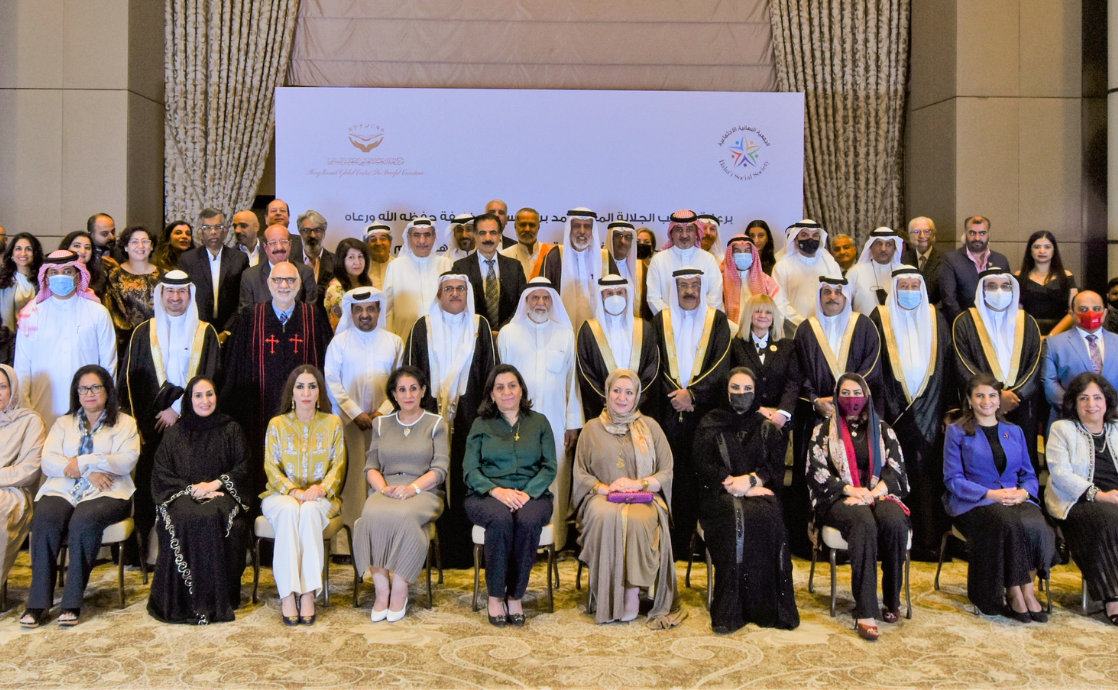In a world increasingly characterized by polarization and conflict, the philosophy underpinning the Bahá’í Faith advocates coexistence and harmony among diverse cultures and ideologies. The recent National Gathering on Coexistence held in Bahrain served as a poignant reminder of these fundamental teachings and the enduring legacy of ‘Abdu’l-Bahá, the son of Bahá’u’lláh and an eminent figure in the Bahá’í community. This gathering not only paid homage to his life and teachings but also fostered a symposium for dialogue, reflection, and the promotion of unity in diversity.
At the core of the Bahá’í teachings is the notion of the Oneness of Humanity. ‘Abdu’l-Bahá espoused this principle throughout his life, elucidating the importance of transcending national, racial, and religious boundaries to cultivate a global community. The National Gathering on Coexistence exemplified this ethos, bringing together individuals from various backgrounds to engage in meaningful discussions about social cohesion and collaborative efforts toward a peaceful society.
This event elicited a profound shift in perspective regarding coexistence. Attendees were encouraged to contemplate their positions within the grand tapestry of humanity. This was not merely a theoretical exercise; it compelled participants to engage with the tangible implications of coexistence in their everyday lives. By challenging conventional narratives of division, the gathering sought to inspire attendees to adopt a more holistic worldview—one that acknowledges the interconnectedness of all peoples.
‘Abdu’l-Bahá’s life story is a source of inspiration for many. His experiences as a prisoner and a messenger of peace reveal resilience and a commitment to social justice. During the gathering, the attendees reflected on his exhortations to love and unity. This reflection was framed not only through the lens of Bahá’í theology but also through practical applications aimed at contemporary society’s challenges. The legacy of ‘Abdu’l-Bahá is not just historical; it is an active call to action, urging individuals to engage in dialogues that promote understanding and reconciliation.
The structure of the gathering facilitated the emergence of new ideas. Workshops and presentations were built around the concept of coexistence, emphasizing the value of diverse perspectives. Participants had the opportunity to share personal experiences of collaboration across different societal lines. These narratives served to not only validate the existence of unity in diversity but also to generate curiosity about the possibilities that arise when individuals work together despite differing backgrounds. Such stories exemplify the beauty of human interaction, forged through engagement rather than isolation.
Furthermore, the gathering highlighted the imperative of educational initiatives aimed at promoting coexistence from a young age. Educational institutions are critical in fostering respect and understanding among diverse demographic groups. By instilling values of inclusivity and compassion within the educational framework, future generations may become more adept at navigating the complexities of a pluralistic society. Informed citizens are fundamental in bridging divides and nurturing an environment where dialogue can prosper.
A pivotal aspect of the gathering was the emphasis on practical steps toward building a culture of peace. Calls to action emerged, urging attendees to embrace volunteerism and community service as vehicles for fostering coexistence. Engagement in local projects dedicated to solving communal issues can actively dismantle the barriers that segregation erects. Participants were encouraged to plant the seeds of cooperation in their neighborhoods, reinforcing the notion that collective action can lead to profound societal transformation.
The principles of Bahá’í teachings advocate that true peace is not merely the absence of conflict but rather the presence of justice and equity. Thus, discussions at the gathering extended into the realm of social action. Participants were invigorated by the prospect of engaging in initiatives aimed at addressing systemic inequalities that perpetuate division. The insights shared during these discussions served to galvanize attendees, compelling them towards tangible commitments towards social betterment.
The National Gathering on Coexistence also reflected upon the role of spirituality in the quest for a harmonious society. ‘Abdu’l-Bahá emphasized that a deep spiritual commitment fortifies individuals in their pursuit of justice and love. This spiritual dimension encourages adherents to act out of a profound sense of responsibility toward their fellow human beings. The gathering provided an opportunity for individuals to explore their spirituality and its implications for their interactions within their communities.
In conclusion, the National Gathering on Coexistence in Bahrain was not simply a commemorative event but a catalyst for meaningful transformation. It highlighted the timeless teachings of ‘Abdu’l-Bahá while also paving the way for contemporary application. The pledges made by participants to champion unity and collaboration reflect an understanding that coexistence is both a moral imperative and a necessary condition for humanity’s advancement. The event indeed promised a shift in perspective; it piqued curiosity and ignited a collective urgency to establish a society where diversity is not merely tolerated but embraced as a vital asset. The teachings of the Bahá’í Faith remind us that the road to a united global community is paved with love, understanding, and proactive engagement.
